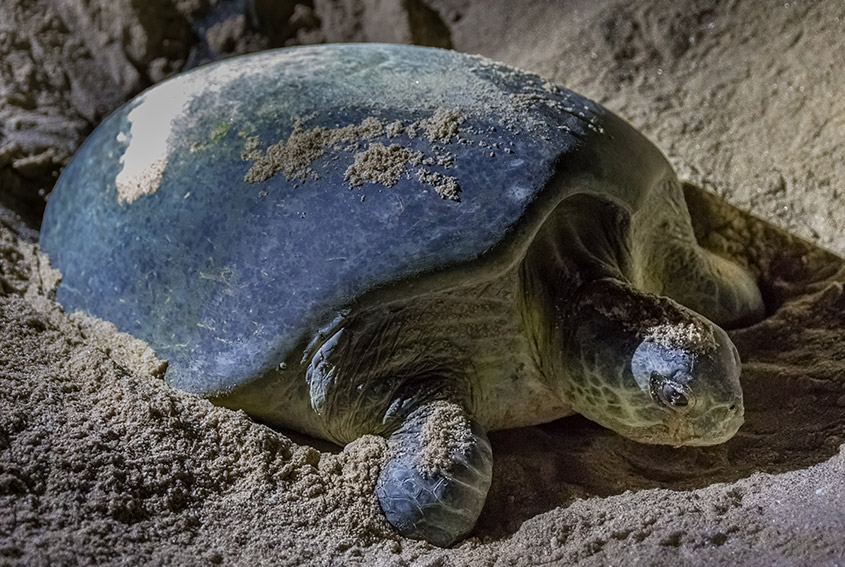First sea turtle of the 2023 season

Our sea turtle visitors are arriving! The first nest of the 2023 season was registered at The Royal Sands on May 24 and 90 precious green turtle eggs were moved to the corral further up the beach where they will be safe from predators and the passage of human feet. In 45 to 60 days, the eggs will hatch, and the tiny turtles will be released to begin life at sea.
From experience, we know that the season always begins slowly in May and picks up in early June after the first rains of the season. This was the case and there are now 89 nests at The Royal Sands with 9,956 eggs. Since then, our turtle guardians have been very busy, with between two and eight female turtles a night to watch over as they come ashore to lay their eggs.
Also in May, turtle guardians working for Flora, Fauna y Cultura, an NGO which patrols many of the most important turtle nesting sites in the Riviera Maya, reported a leatherback turtle nest in the Xcacel-Xcacelito turtle sanctuary, this is the first time a leatherback has been registered on Xcacel beach and hopefully she will return again in the years to come.
We will be keeping you posted with news from the resorts and other nesting areas in the Mexican Caribbean during turtle season. In the meantime, for members and guests who will be staying with us this summer, here are the turtle rules to follow.
- Alert the security staff when you see a turtle on the beach at night
- Be very quiet and keep still, noise, lights and the movement of people disturb nesting sea turtles and cause them to leave the beach without laying eggs
- Watch from a distance of 10 meters (33 feet)
- Do not attempt to touch the turtle or crowd her
- Do not shine a torch or use the light on your mobile phone
- No flash photography
- No smoking
- Obey security staff when they give instructions
- If you are staying in a beachfront villa, turn the lights off when you go to bed. Artificial light can disorientate turtles and lead them inland instead of back towards the waves.
- Help us to keep our beaches and sea clean. Plastic straws, bags, packaging, fishing lines and nets and other garbage floating in the water are lethal to turtles and other marine life
- When snorkeling or diving, watch turtles from a distance, do not swim towards them and do not attempt to touch them
- Wear a t-shirt when snorkeling as protection from the sun instead of applying sun block. Sun products pollute the water and are harmful to marine life
- Turtles are protected by Mexican law, and it is illegal to disturb them, persecute or hunt them and consume their meat or eggs.
